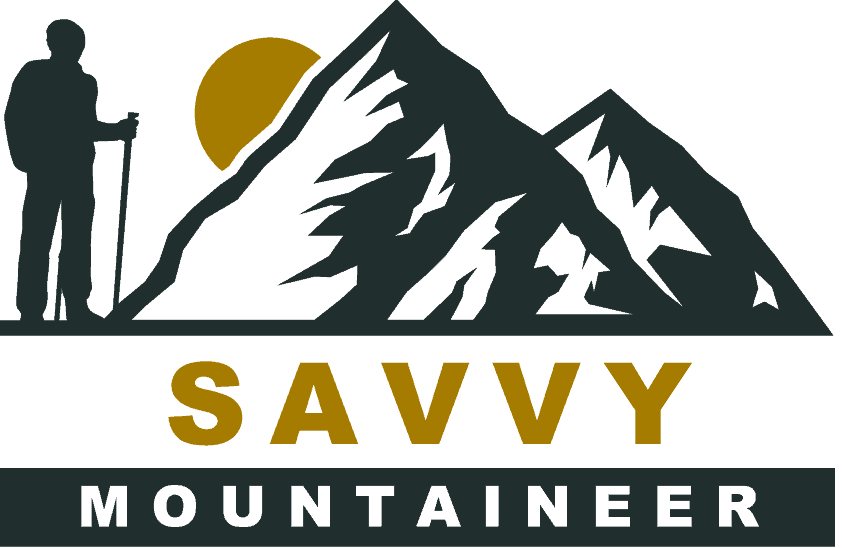Exploring the Great Outdoors: Why Do People Go Camping?
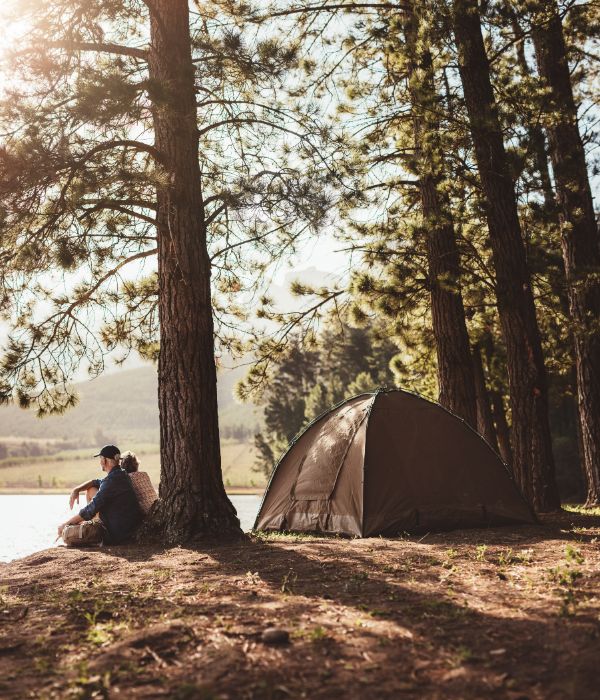
Why do people go camping?
The question has been asked countless times, sparking curiosity and wonder.
What is it that really lures individuals to the beauty of nature?
In a world dominated by technology and urban living, why do people go camping?
We’re about to delve into this intriguing subject matter.
Table of Contents
1. Benefits of Camping
Spending time camping can provide a range of physical and mental benefits.
The Physical Rewards of Time Spent Camping
A camping trip allows you to immerse yourself in the great outdoors, breathing in fresh air often scarce in urban environments.
This immersion facilitates unique experiences such as hiking state parks or gathering firewood for your campfire – activities which promote fitness and well-being.
Mental Health Advantages: Confidence & Relationships
Beyond the obvious health perks, there’s something about being out under open skies that can help grow confidence it’s important not to underestimate this aspect when considering why people go camping.
Solving problems like how to set up tents or start fires provides practical skills while also boosting self-esteem. Research shows that younger campers especially benefit from these challenges is reasons scouting programs emphasize outdoor adventures so heavily.
Camping Improves Relationships Too
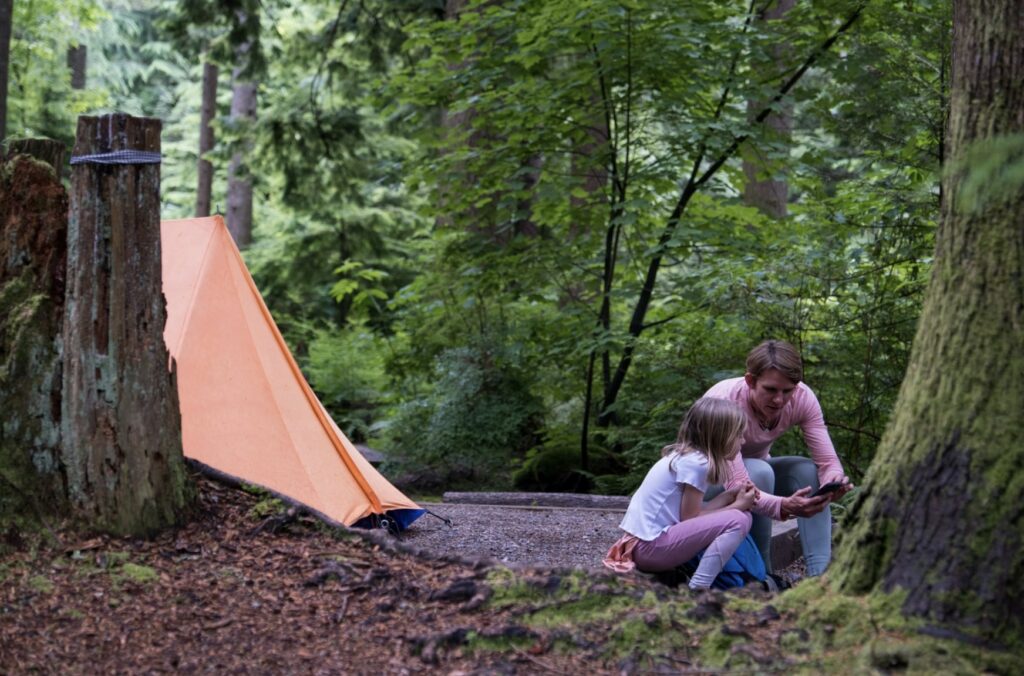
You’re likely aware over 40 million families enjoy local weekend trips annually across America alone is a testament to how much bonding happens when you’re camping together around an open fire roasting marshmallows after a long day exploring nature.
Time spent on family adventure helps strengthen relationships through shared experiences – making memories that last far beyond the duration of any single outing.
In addition, social interactions during group outings foster deeper connections with friends and loved ones alike is an essential component many seek out intentionally during their excursions into wilderness areas accessible via public lands including national forests plus private sites at open-to-the-public campgrounds nationwide.
Selecting Your Gear For The Journey Ahead
Packing right is crucial before heading off into woods where encounters wildlife might be frequent occurrence depending location selected by each individual camper whether they are seasoned veterans beginners looking forward very first overnight stay beneath stars wrapped snugly inside cozy sleeping bag beside warm crackling flames providing light against dark night sky filled countless twinkling celestial bodies above…
This leads us onto our next topic – choosing suitable gear based upon specific needs requirements involved ensuring every participant remains safe comfortable throughout entire journey regardless weather conditions encountered along way…
Key Takeaway
Discover the physical and mental benefits of camping. Immerse yourself in nature, breathe fresh air, and engage in activities that promote fitness and well-being. Camping also boosts confidence through problem-solving skills and strengthens relationships through shared experiences. Don’t forget to pack the right gear for a safe and comfortable journey.
Gear Selection: Picking the Right Equipment for Your Camping Trip

Embarking on a camping trip requires careful planning, and at the heart of that preparation is selecting appropriate camping gear.
The Essentials: What You Can’t Leave Behind
A well-packed backpack can make or break your local weekend camping trip.
Certain items are an absolute must when you’re embarking on a nature-filled excursion.
- Your sleeping bag: A quality sleeping bag ensures comfort during those chilly nights under starlit skies. Choose one suitable for expected weather conditions to ensure restful sleep after an adventurous day.
- Tent: The tent serves as your home away from home while you are camping; it should be durable, waterproof, and easy to set up even in scarce fresh air high altitudes.
- Cookware & Food Supplies: From roasting marshmallows over an open fire to preparing hearty meals – having reliable cookware facilitates memorable outdoor dining experiences.
Packing Smartly For Different Terrains And Weather Conditions
No two campsites are alike – what works perfectly in state parks may not suffice if you decide to go wild-camping by a remote lake. Therefore, adaptability is key when choosing your equipment.
- If there’s potential rain forecasted during your time spent camping consider packing waterproof clothing along with extra tarps for additional shelter protection.
- In case of colder climates invest in thermal wear insulating mats and warm sleeping bags so cold won’t disrupt peaceful slumbers beneath twinkling stars.
3. Safety Tips
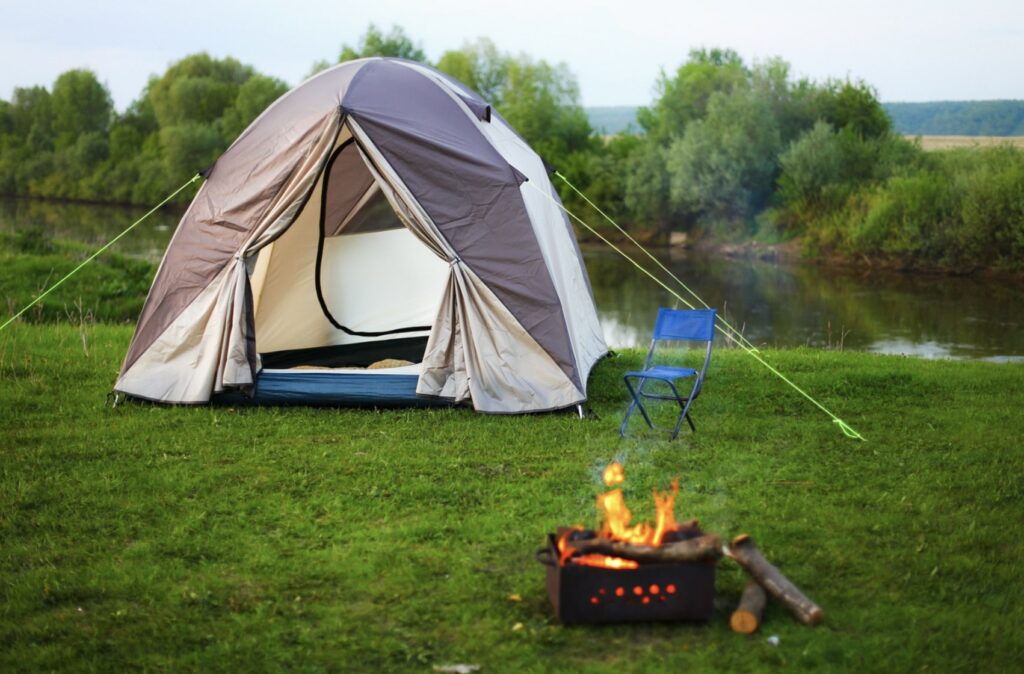
Prioritizing safety should be at the forefront of any camping trip.
When camping in state parks or open-to-the-public campgrounds, take extra caution due to potential wildlife encounters.
Gear Essentials for Safety
Your choice of camping gear can greatly influence the level of safety during your time spent camping.
A sturdy tent and warm sleeping bag are fundamental to protect against harsh weather conditions and cold nights outdoors.
Campfire Safety
Roasting marshmallows over an open fire might seem like a quintessential part of any family adventure while you’re camping, but it’s important to remember that fires can also pose significant risks if not managed properly.
Navigating Wildlife Encounters Safely
If spending time in areas with abundant wildlife, knowing how to interact safely with animals is crucial. State Park’s Wildlife Interaction Guide covers this topic extensively so younger campers as well as adults can learn about respectful animal encounters before they set off into the great outdoors.
As we’ve seen, being prepared isn’t just about having fun it’s essential for ensuring everyone stays safe throughout their local weekend getaway or more extended wilderness exploration. In our next section, we’ll discuss another critical aspect of planning: choosing the perfect spot for setting up camp.
4. Campsite Selection

Selecting the perfect campsite is a crucial aspect of any camping trip.
Choosing the correct campsite can be a determining factor in how your outdoor adventure turns out.
Finding Open-to-the-Public Campgrounds
The first step to selecting an ideal campsite is finding open-to-the-public campgrounds.
State and national parks, for instance, often have designated campsites that are well-maintained and come with basic amenities.
Evaluating The Site’s Location
An important factor when choosing a site is its location relative to water sources, trails, and other points of interest you might want to explore during your stay.
For example,
Taking Note Of Natural Features And Wildlife Habitats
You should also consider natural features such as shade trees for hot days or flat ground for pitching tents comfortably. Be aware of wildlife habitats too; while it’s exciting to encounter wildlife on a local weekend camping trip, setting up right next door may not be wise.
Gearing Up For Your Camping Trip
- A good sleeping bag will ensure comfortable nights regardless of where you pitch your tent.
- Camping gear like headlamps could prove useful if you need gather firewood after dark.
Finally, remember: every time spent camping brings unique experiences – from roasting marshmallows over an open fire under scarce fresh air stars to waking up surrounded by nature’s beauty.
Nature Appreciation
Immersing oneself in the great outdoors during a camping trip is an excellent way to foster nature appreciation.
The time spent camping allows you to disconnect from technology and reconnect with Mother Nature, offering numerous benefits for both your mind and body.
A Breath of Fresh Air
In today’s urbanized world, fresh air has become increasingly scarce. When you’re camping at open-to-the-public campgrounds or state parks, however, it’s abundant.
Taking deep breaths of this pure oxygen not only cleanses your lungs but also increases happiness levels by releasing serotonin in the brain. Studies have demonstrated that spending time in the outdoors can substantially decrease tension while boosting mood and sleep quality.
Gaining New Skills
Camping experiences often involve learning new skills such as how to set up tents or start fires safely using gathered firewood. This hands-on interaction with natural elements facilitates practical knowledge acquisition is a reason scouting programs heavily emphasize outdoor activities like these.
Youth Engagement With Nature
Raising younger campers’ awareness about environmental conservation becomes easier when they are directly interacting with wildlife on their local weekend camping trips. They get opportunities to observe different species in their natural habitat’s an experience no virtual medium could ever replicate fully.
This direct exposure helps children develop respect towards all living being’s fostering responsible future citizens who would care for our planet more consciously. Remember: A sleeping bag under starry skies provides much more than just a night’s rest; it offers lessons worth lifetime memories.
In anticipation of what comes next on our adventure-packed itinerary – let us dive into some exciting ways we can make meals memorable even without kitchen amenities….
6. Outdoor Cooking

When you’re camping, one of the most memorable experiences is cooking outdoors.
The aroma of food over an open fire, coupled with scarce fresh air and a stunning view can be exhilarating.
A Taste for Adventure: Campfire Cooking Essentials
Campfire cooking isn’t just about roasting marshmallows on sticks (although that’s always fun).
You’ll need to gather firewood responsibly from around your campsite or bring eco-friendly options if regulations require it.
- Your trusty camping gear should include essential cookware such as pots and pans suitable for use over an open flame,
- A versatile utensil set,
- An easy-to-clean cutting board,
- And don’t forget sturdy plates and cups.
Making Meals Memorable When Camping Outdoors:
Cooking while you’re camping does not have to mean sacrificing taste or nutrition – far from it.
In fact, meals prepared in the great outdoors often taste better because they come with a side serving of adventure.
- Pack ingredients that travel well like pasta, rice or canned goods which provide energy needed when spending time exploring nature during your local weekend camping trip.
- Create simple yet hearty dishes – think chili con carne cooked slowly over embers, cooked breakfasts featuring eggs scrambled in a pan warmed by the morning’s first flames, or even freshly caught fish grilled directly over coals – nothing tastes fresher.
- If possible plan ahead & pre-prepare items at home before leaving; marinate meats ready for grilling or make salads packed into sealable containers. This will save valuable relaxation time once at camp.
These three steps alone can facilitate enjoyable dining experiences under starlit skies surrounded by loved ones.
Remember though – Always follow safety guidelines regarding starting fires near dry vegetation areas.
7. Wildlife Interaction

When camping, one has the opportunity to come across wildlife in their native environment; a thrilling part of any outdoor journey that should be approached with care and consideration.
This can be an exciting part of your adventure, but it’s important to approach these interactions with caution and respect.
A Respectful Distance
The first rule when encountering wildlife while camping is maintaining a respectful distance.
You are visiting their home; therefore, disturbing them or invading their space should be avoided at all costs. Here are some tips on how to safely observe animals from afar without causing any distress.
Safety Precautions
Bears, raccoons and other creatures might find your campsite interesting due to food smells or curiosity about unfamiliar objects like sleeping bags or camping gear. This guide explains how best to secure your site against curious critters, including using bear-resistant containers for storing food and disposing trash properly so as not attract unwanted visitors during your family adventure in the great outdoors.
Night Time Encounters
Camping often involves staying awake after dark roasting marshmallows over an open fire under scarce fresh air filled night sky where nocturnal animals may become more active. Learn more about what kind of creatures come out at night here.
To avoid startling encounters use flashlights sparingly and keep noise levels low.
FAQs in Relation to Why Do People Go Camping
Why is camping so popular now?
Camping has surged in popularity due to its ability to provide a break from technology, offer outdoor adventures, and foster stronger relationships. It’s also seen as an affordable vacation option.
Why do people tent camp?
Tent camping provides a more authentic connection with nature. It allows for flexibility in location and can be less expensive than other forms of accommodation.
Why do Millennials go camping?
Millennials enjoy camping because it offers unique experiences, opportunities for socialization, digital detoxification, and an inexpensive way to travel while appreciating the natural world.
What is the main idea of camping?
The main idea of camping is to immerse oneself in nature by living outdoors temporarily. This experience promotes relaxation, adventure, self-reliance and appreciation for the environment.
Conclusion
In essence, people go camping because it reconnects them with their primal roots while offering a refreshing break from urban life.
Ready for your next mountainous adventure? Savvy Mountaineer is here as your #1 resource! Whether you’re planning a weekend getaway or preparing for an extended expedition, we’ve got all the information you need about safety tips, gear selection and more. Start exploring today at www.savvymountaineer.com. Your journey towards understanding why people go camping starts now.

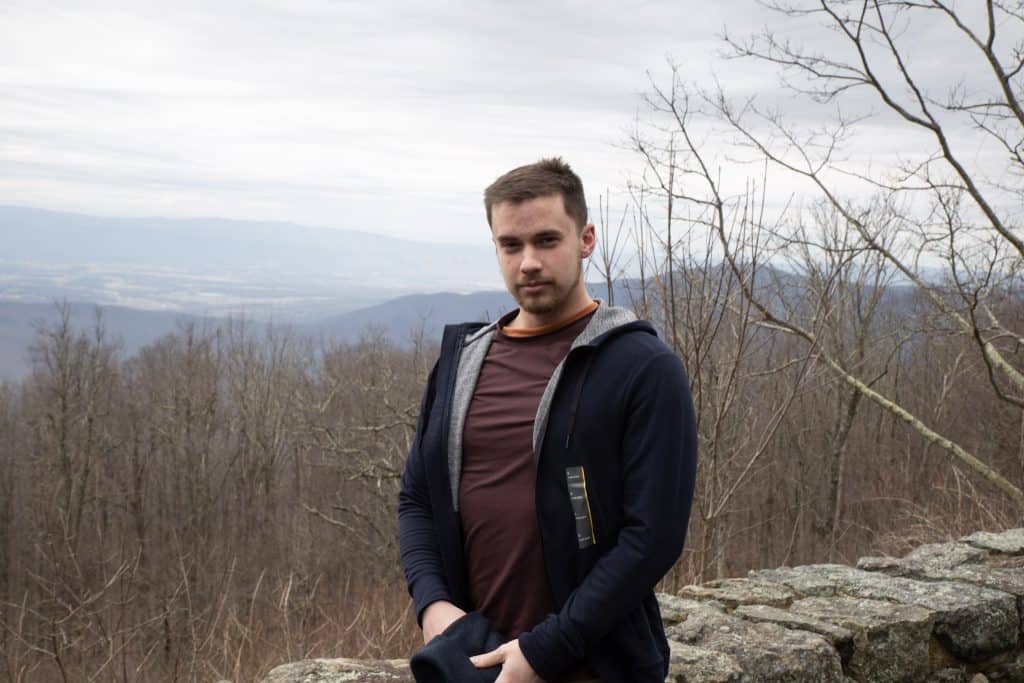
Deeba & Matt
About the Authors
Intrepid content creators and relentless hiking enthusiasts. With a passion for travel and adventure, Matt & Deeba are never one to shy away from a daring challenge.
